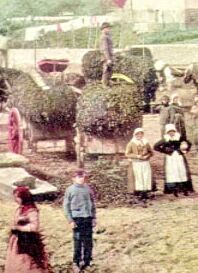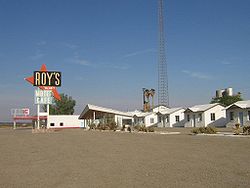What is another word for 'fanatic tyrant'? Arvind Kumar could tell you. And so could his wife, his daughter, and his only son, all of whose lives were sacrificed at the altar of Arvind's insane dream to create the largest Hindi thesaurus the world has ever seen.
Arvind first felt this terrible desire the write a thesaurus as a young man in 1952. He came across a copy of the chillingly titled: Thesaurus of English Words and Phrases Classified and Arranged so as to Facilitate the Expression of Ideas and Assist in Literary Composition.” This book later went on to infamy as the Roget’s Thesaurus. He was seduced by its gilded pages and handcrafted layout that cooly systematized the world. The impulse to impose a similar order on the country and people of India overwhelmed him.
Then the moment passed. He forgot this madness and for more than twenty years lived a life no different from his upper-class, well-educated peers. He found work as a magazine editor, married his wife Kusum. They had a son and then a daughter who they loved. Then one night at a cocktail party Arvind looked around him and felt a dark shadow come over him. Wasn't there more that he could be doing with his life? Wasn't there some great plan he was betraying? Suddenly he remembered that twisted Frenchman's book.
He did not sleep that night as the demon's raged within him. By the morning the battle was lost and his mind was completely turned to the thought of the monstrous thesaurus. He told his wife what he had planned for them and began hoarding dictionaries and money in preparation for the task. Two years later he quit his job and retreated from society. Work on the thesaurus began.
Each entry was written onto a piece of cardboard and filed by hand. It was incredibly slow and painstaking labour that drain body and soul of life. If Arvind had been able to admit his madness for what it was and at least not force anyone else to share in it perhaps we could look more kindly on him now. But instead he pulled first his wife, then his son and his daughter into his penniless scheme.
Kusum, already a mother of grown children, was forced to tackle ALL THE NOUN entries while Arvind reserved the more esoteric and conceptual ones for himself to mull over. For twelve long years Kusum slaved at Arvind's linguistic mill. By 1990 there were 60,000 cards with about 250,000 handwritten words filling 70 trays. By the next year, they had listed 350,000 Hindi words.When boasting to others about the scale of his work, Arvind tells of how the book contains 125 words for turmeric, and 32 for helmet. It is worth noting that both of these are NOUNS.
Next to fall foul of this terrible regime was Arvind's only son. “We knew it was time to shift to a more organised form of filing, and to start using a computer.” says Arvind. And so his son Sumeet, who was living a happy life as a doctor in India, found himself emigrating to Iran in order to save enough money to buy his father a computer. Once he had done that, he had to return to the family home in order to type all the entries up. It was at this point his sister was asked to lend a hand.
After another five year's slave labour by the whole family the job was at last finished and the book was ready to publish. The largest and most comprehensive Hindi thesaurus ever written...it barely caused a stir.
Arvind decided to add an English side to the book.
Arvind and his unlucky family toil on to this day. In a country of a billion, they are alone on a road which has no end, and only a lunatic's urges to guide them.
When boasting about the originality of his work Arvind points out how difficult it is to translate a western invention like the 'Spinning Jenny':
"A literal translation into Hindi would be ridiculous because the name was coined by the inventor and is specific to the language. But, if you go to the Bombay mills and ask the workers, they have their own name for the machine: Putli.”
The Spinning Jenny was a machine that swallowed up the lives of countless women and children in Europe. Instead of taking yourself off for a walk to the mills Arvind, to gawp at the poor workers there, I think you could find a fitting translation in your own backyard: the English-Hindi/Hindi-English Thesaurus and Dictionary.















